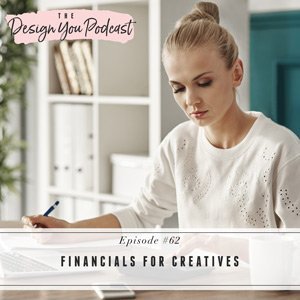

As creatives, we often like keeping our head in the sand when it comes to anything like finances, accounting, or bookkeeping in our businesses. We tell ourselves we’re not good at it and then feel shame and embarrassment, or we just straight up don’t like dealing with it.
They’re complicated and scary, and we’re very often not taught how to manage our finances. Staying on this track, however – you might have already guessed it – is destructive to your business. What I’m addressing on the podcast today is a way for you to be comfortable with your finances, so that you can fully take advantage and make the kind of profit you’ve always dreamt of.
Listen in this week if you’re ready to start deliberately taking the kind of actions that will make your business profitable! Having the right kind of structures and systems in place is going to transform your finances, and I’m giving you the lowdown today.
If you want to learn exactly how I have taken the tools I’ve gained over the years to get comfortable with my finances, you need to come join me in Design You for the month of June! I’ll be spending two whole days doing a live stream course where you can learn how to absolutely change your financial position and run your business like a real business owner. See you there!





